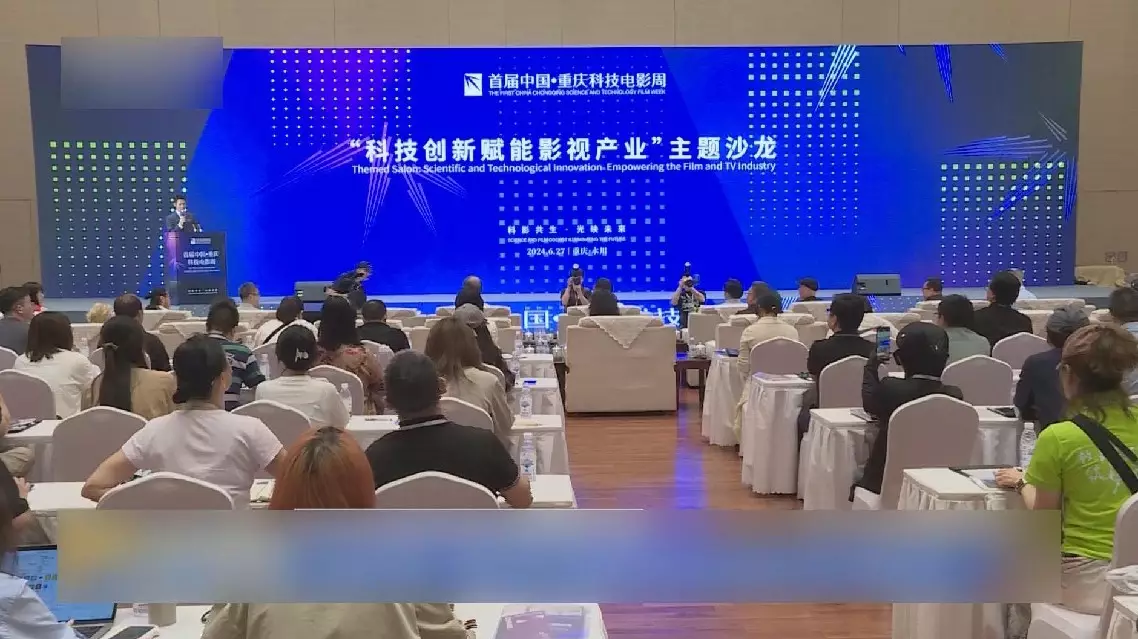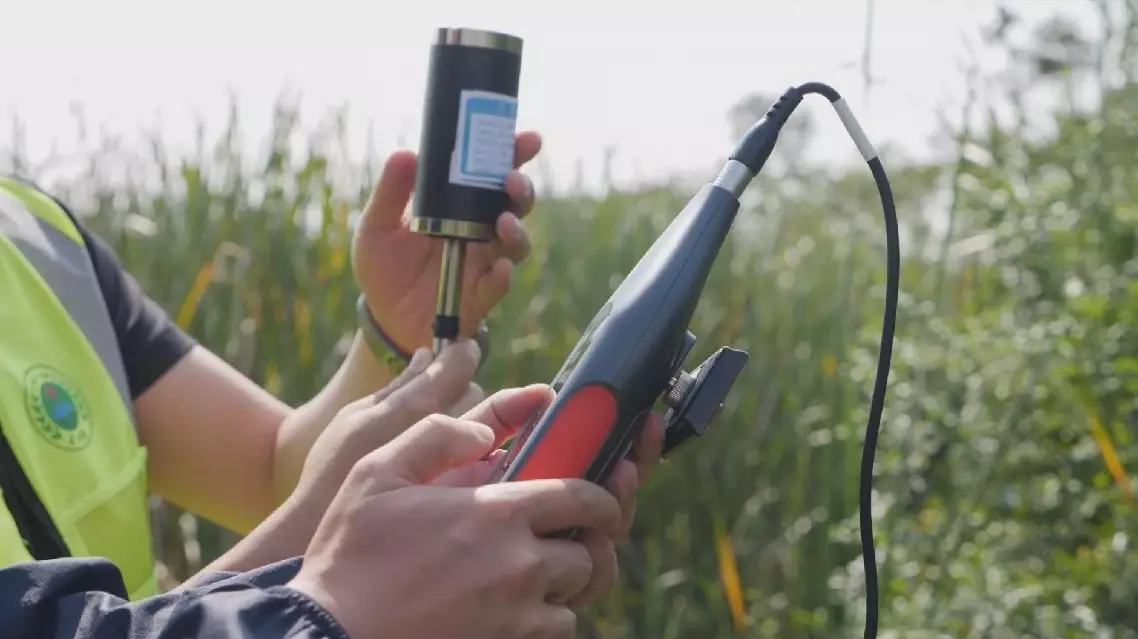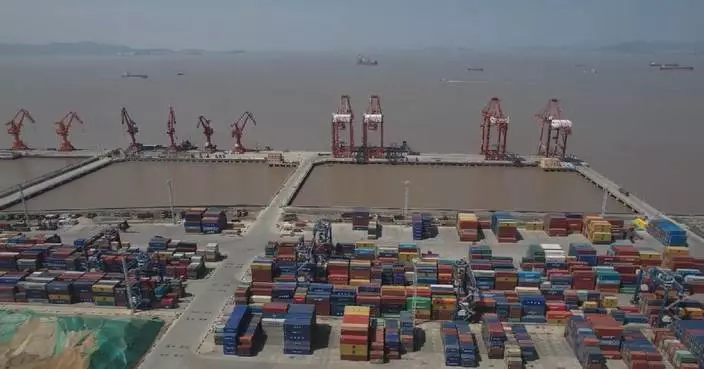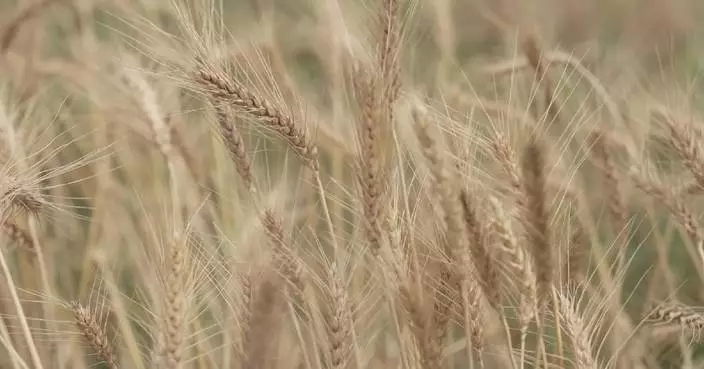The first China Chongqing Science and Technology Film Week is taking place in southwest China's Chongqing Municipality, with forums and lectures focusing on the application of new technologies such as artificial intelligence in the film industry.
The six-day event kicked off on Wednesday in Chongqing's Yongchuan District, gathering experts, academics and leaders in the film and TV industry from home and abroad.
On Thursday, four themed salons were held on hot topics such as sci-tech innovations empowering the film and TV industry, virtual production and the upgrading of the film industry, and the integrated development of generative artificial intelligence, film and TV industry and metaverse.
"Director Guo Fan has said that when making The Wandering Earth 3 and later sequels, he would apply AI into the production of more scenes, including using it to present some movements and spatial relations. So, we all said during the Shanghai International Film Festival that AI is not the future. It is already present," said Yin Hong, vice president of the China Film Association.
In the following panel discussions, the guests shared their views on today and tomorrow's film industry and the development of science and technologies from different perspectives.
"We creators, especially visual creators, will embrace this technology in the years to come. It could be a very good thing," said Huo Tingxiao, president of the China Film Art Direction Academy.
On Thursday evening, a virtual girl group staged a concert on a huge screen at the venue, displaying the charm of cutting-edge technologies to the audience.
The film week also held several lectures on Friday, where film directors Li Lichi, Liu Xiaoshi and many other experts shared their insights on film production and science and technology.
"High-tech tools are surely useful in today's film production, very useful. They will bring disruptive changes to the work of our technical teams. But we have to bear in mind that they are just tools, of which we should be the masters, not slaves," Liu said.
In addition, more than 10 film and sci-tech companies presented their latest filmmaking technologies during the event.

Chongqing hosts first sci-tech film week
The China National Environmental Monitoring Center (CNEMC) has launched the establishment of a database of natural sounds within urban areas this year, aiming to help manage urban noise pollution by more accurately identifying and differentiating natural sounds from artificial noises.
China plans to build a unified national network for automatically monitoring acoustic environmental quality starting on January 1, 2025. The system will focus on monitoring urban man-made noises, but at the same time, it will also unavoidably include natural sounds from birds and insects, as well as the rustling of wind and rain. These natural sounds could affect the accuracy of noise assessments, so it is necessary to collect them in a database so as to better identify and classify different types of noise. By the Dianchi Lake in Kunming, southwest China's Yunnan Province, local environmental monitoring professionals used specific equipment to capture various sounds within a wetland park. They collected sounds from birds, insects, and frogs, along with natural noises like rain, thunder, and wind. These sounds could potentially influence the monitoring results of urban acoustic environmental quality.
They recorded sounds for at least two hours at each monitoring location. They then used specialized software to analyze these recordings, selecting the clearer and less disrupted natural sounds to upload them into the database.
"The natural sounds in this recording are relatively clear and distinct, and the background noise is relatively low, so it is valid. But look at the waveform of this recording, the bird or insect sounds are unclear, and the environmental noise is relatively loud. Based on these two criteria, this recording is invalid," said He Fanyu, an engineer at the Yunnan Ecological and Environment Monitoring Center.
Since the first quarter of this year, the CNEMC has organized local environmental monitoring stations to record natural sounds in urban areas of over 80 cities. As of now, more than 420,000 raw recordings have been made, with 80,000 of them being valid. By the end of the year, it is expected that 600,000 valid recordings will have been collected nationwide for the development of China's largest noise database.
"After the database is built, our next step is to train and test an intelligent sound recognition model. It will help us not only to check if noise levels exceed allowed limits but also to identify where the excess noise is coming from. For example, construction noise is temporary and highly variable, so it requires specific management, especially during nighttime," said Wang Yun, a senior engineer at the Physics Department of the CNEMC.

China developing natural sound database to better tackle urban noise pollution










